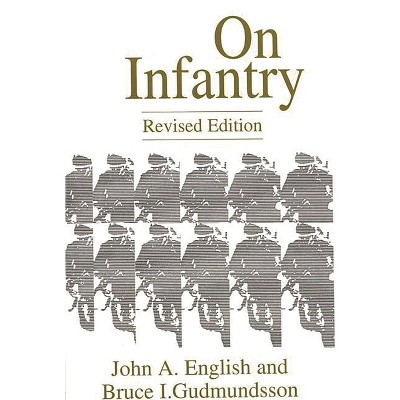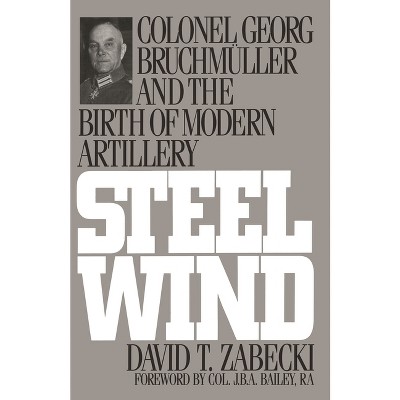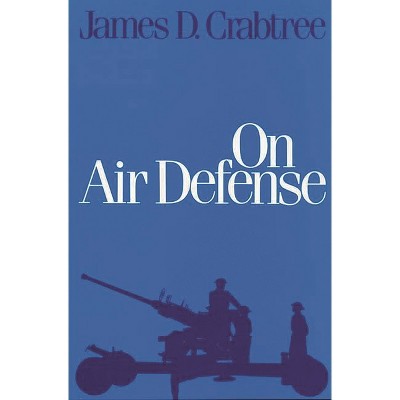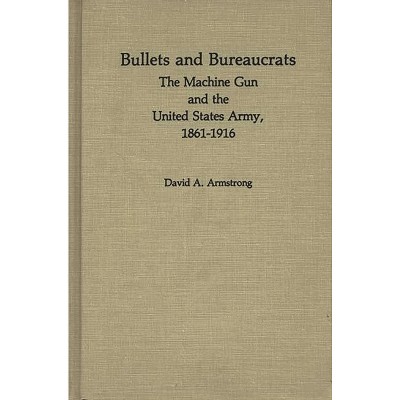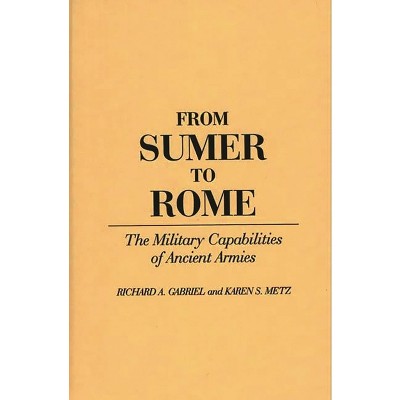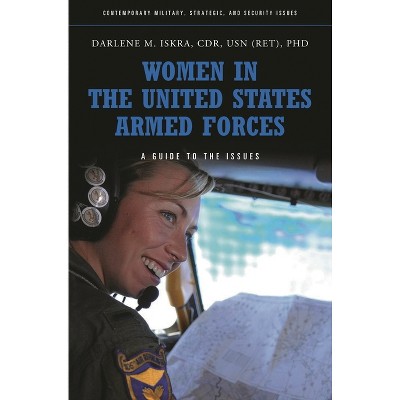Sponsored

Military History and the Military Profession - by David Charters (Hardcover)
In Stock
Sponsored
About this item
Highlights
- This volume examines the state of the art in modern military history, and the utility of the subject as a training, educational, and policy-relevant tool for professional armed forces.
- About the Author: DAVID A. CHARTERS is Director of the Centre for Conflict Studies, University of New Brunswick.
- 264 Pages
- History, Military
Description
About the Book
This volume examines the state of the art in modern military history, and the utility of the subject as a training, educational, and policy-relevant tool for professional armed forces. Part 1 explores the state of military historical writing in Britain and the United States, and on specific topics, such as air warfare, naval warfare, intelligence, low-intensity conflict, and the most recent trends in the New Military History. Part 2 illustrates the utility of the historical method in analyzing command decisions, providing an institutional memory for a wide range of policy, command, and operational problems, and its application in specific subjects such as naval strategy, and by certain countries (the US, Germany, and the Soviet Union) in the search for lessons and fundamental principles. The contributing authors represent an impressive cross-section of prominent academic and official historians recognized as leading scholars in the study of military history. The Foreword is written by Anne N. Foreman, Undersecretary of the United States Air Force.
This book will be of interest to the academic and the official historian (and their students) and to military professionals.
Book Synopsis
This volume examines the state of the art in modern military history, and the utility of the subject as a training, educational, and policy-relevant tool for professional armed forces. Part 1 explores the state of military historical writing in Britain and the United States, and on specific topics, such as air warfare, naval warfare, intelligence, low-intensity conflict, and the most recent trends in the New Military History. Part 2 illustrates the utility of the historical method in analyzing command decisions, providing an institutional memory for a wide range of policy, command, and operational problems, and its application in specific subjects such as naval strategy, and by certain countries (the US, Germany, and the Soviet Union) in the search for lessons and fundamental principles. The contributing authors represent an impressive cross-section of prominent academic and official historians recognized as leading scholars in the study of military history. The Foreword is written by Anne N. Foreman, Undersecretary of the United States Air Force.
This book will be of interest to the academic and the official historian (and their students) and to military professionals.Review Quotes
?Many of the essays have considerable merit. The value of many of the articles is further enhanced by excellent bibliographies. This work is necessary for specialized collections.?-Choice
?Nevertheless, this is an extremely stimulating symposium with a consistently high scholarly level unusual in many group ventures. The volume should be of interest to all military historians, and especially those involved in the education of the armed services.?-Military History
?This is a gathering of 15 essays with a practical forward by Anne Forman, former US Air Force undersecretary, on the uses of military history in policymaking.?-Parameters
?This is a worthwhile addition to any military history library.?-Air Power History
"Many of the essays have considerable merit. The value of many of the articles is further enhanced by excellent bibliographies. This work is necessary for specialized collections."-Choice
"This is a gathering of 15 essays with a practical forward by Anne Forman, former US Air Force undersecretary, on the uses of military history in policymaking."-Parameters
"This is a worthwhile addition to any military history library."-Air Power History
"Nevertheless, this is an extremely stimulating symposium with a consistently high scholarly level unusual in many group ventures. The volume should be of interest to all military historians, and especially those involved in the education of the armed services."-Military History
About the Author
DAVID A. CHARTERS is Director of the Centre for Conflict Studies, University of New Brunswick.
MARC MILNER is Associate Professor of History and Director of the Military and Strategic Programme at the University of New Brunswick. J. BRENT WILSON is Senior Researcher at the Centre for Conflict Studies, University of New Brunswick.Shipping details
Return details
Trending Non-Fiction






